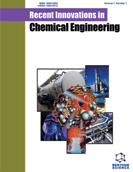Abstract
Routinely, the multi-response Partial Least-Squares (PLS) is used in regression and classification problems showing good performances in many applied studies. In this paper, we aim to present PLS via spline functions focusing on supervised classification studies and showing how PLS methods historically belong to L2 boosting family. The theory of the PLS boost models is presented and used in classification studies. As a natural enrichment of linear PLS boost, we present its multi-response non-linear version by univariate and bivariate spline functions to transform the predictors. Three case studies of different complexities concerning soils and its products will be discussed, showing the gain in diagnostic provided by the non-linear additive PLS boost discriminant analysis compared to the linear one.
Keywords: Partial Least-Squares regression, L2 boost, B-splines, Supervised Classification Analysis, Generalized Cross- Validation, Agro-chemical data















